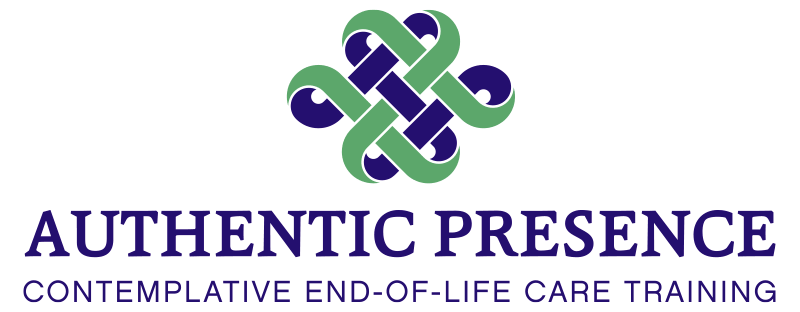Contemplative End-of-Life Care
Personal presence and skilled expertise are critical in offering comfort and support for patients at the threshold of life and death. Modern healthcare however often fails to fully acknowledge all aspects of human experience, including deeper, spiritual needs, especially at the most critical times in a person’s life as they face illness and death as well as the spiritual and human aspect of caregiving.
Many healthcare providers and caregivers struggle with questions including
How can I prevent becoming overwhelmed by the loss I witness?
How do I stay present without losing my own sense of well-being?
How do I speak about death and address deeper fears and concerns with patients and families?
I was astounded when I realized that being present is actually a skill that I can learn and practice.
- Angela Anderson, MD, graduate and faculty
Through learning how to apply and integrate contemplative tools and resources, participants are able to:
cultivate greater mindful awareness and manage their responses,
practice self-compassion in the day-to-day encounters with experiences of suffering and mortality and sustain compassionate intention,
enhance their competencies and skills and increase trust and confidence in their own inner wisdom and
embody authentic presence.
The Four Universal Needs
Participants will learn to identify and address the needs of dying people and their families in a compassionate and effective way. They will learn how to facilitate a patient’s process towards:
understanding and transforming suffering
experiencing a genuine connection with others and healing relationships
finding meaning in life, illness, and dying
finding a source of comfort or peace
Christine Longaker, who was instrumental in the development of the curriculum, identifies these four aspects as ‘the four universal needs of living and dying’.
If unacknowledged or unmet, these needs can become the primary source of suffering for a patient, exacerbating symptoms of physical pain and emotional distress. However, if acknowledged and met, they can become resources a patient can draw from.
Supporting Integrated Learning
Professional and personal growth go hand in hand. Authentic Presence training for professionals and trained volunteers consists of three modules (online and in-person training). Each module can be taken separately and in any sequence. The modular approach allows time to practice course methods and integrate lessons into work and life. The format supports a student’s daily personal practice, study and interactive participation. Our experienced faculty offers one-one-on mentoring for students to directly apply the knowledge and skills for responding to the full range of patient and family needs at the end of life.
Instead of finding a solely academic program, I found myself fully engaged on a personal level, which opened up my whole understanding of life and of death.
- Janice Smith, psychotherapist, graduate
Who is this for?
Professionals working in the fields of medicine, human and social services, students and trained volunteers. All those who are serving the seriously ill or dying and engaged in a clinical setting, whether new to contemplative practice or experienced, are encouraged to join our professional training programs.
We are committed to serving all caregivers. Besides our professional training modules, we offer a special 8-week online course for family caregivers, Caring for Others, Caring for Ourselves.




